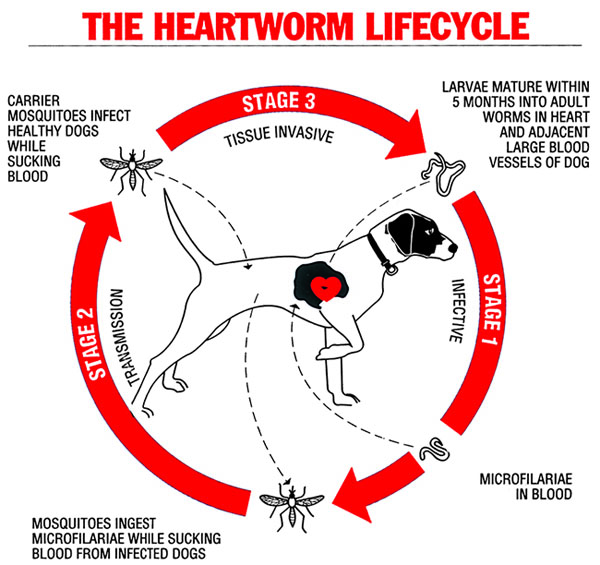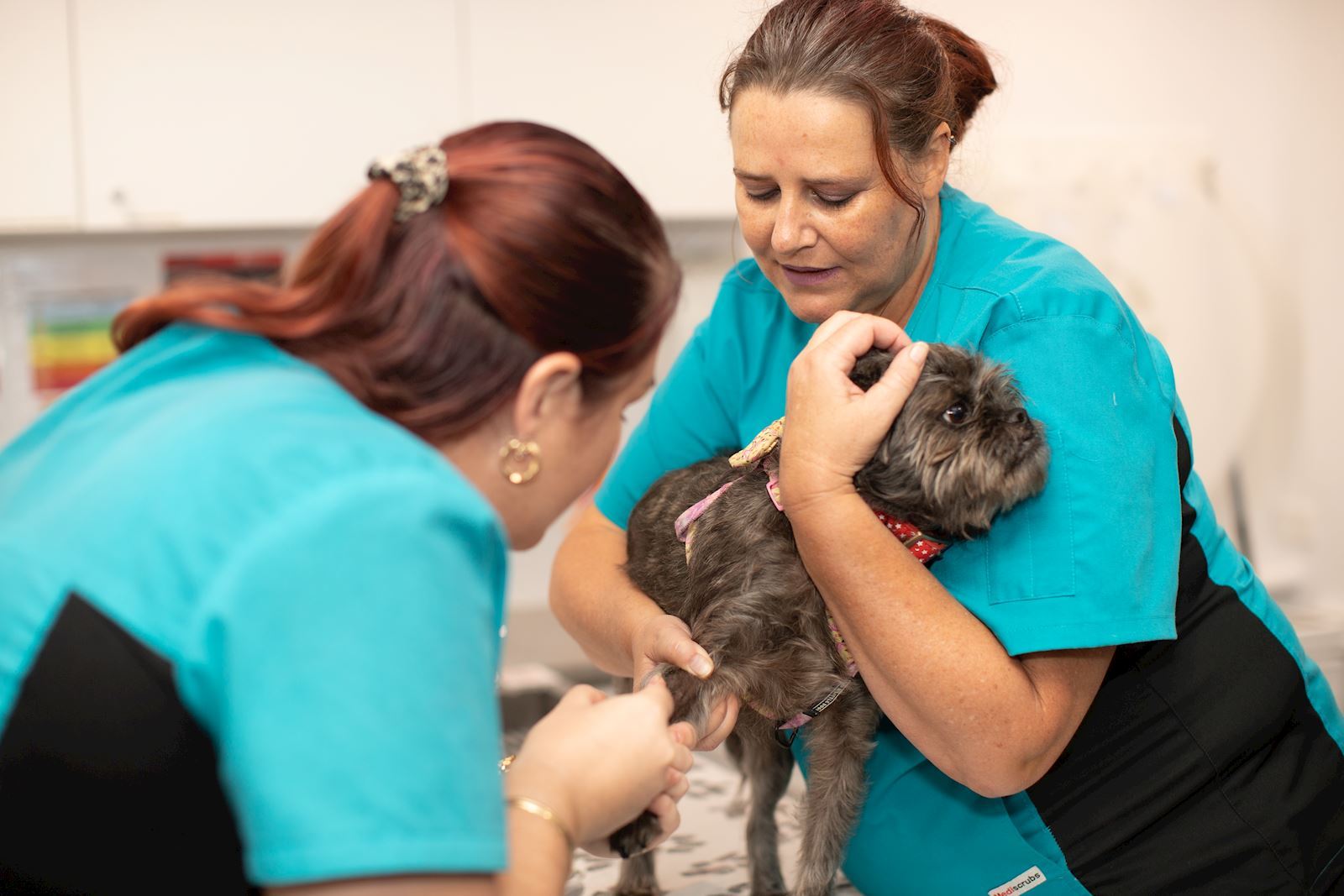Healthcare
Heartworm

Heartworm disease is a serious and potentially fatal disease seen in all mainland states of Australia. Dogs are more susceptible to heartworm infestation than cats, and heartworm disease also tends to be more severe in dogs. Adult worms live within the heart and large blood vessels where they can grow to more than 30 cm in length. Heartworm larvae, more commonly called microfilariae, can also be found circulating in an infected dog’s blood
Heartworms are transmitted from one dog to another by mosquitoes, which pick up the tiny microfilariae when they bite an infected dog. The microfilariae develop in the mosquito and are transmitted when the infected mosquito bites another dog. The heartworm larvae then migrate through the dog’s tissues and circulatory system, eventually reaching the heart and lungs where they grow into adult heartworms.

Heartworm may cause no clinical signs in the early stages of infestation, but as the worms grow and mature, they can interfere with the normal circulation of blood. This can result in signs of heart failure, and in some cases may lead to sudden death.
If your pet has not been on heartworm prevention we strongly recommend you speak to us about a heartworm test prior to starting a prevention program.
We recommend the Proheart SR-12 injection for all dogs. The injection is given based on your dog’s bodyweight. In puppies, the injection is given at 12 weeks of age, then 6 months of age. This is to account for your pup’s growth and change in bodyweight over time. Once adults, the injection is given once a year, often at the same time as vaccination.
- A Proheart SR-12 injection for a 12-week-old puppy is $47.25.
- A Proheart SR-12 injection for a 6-month-old puppy that is 10-20kg is $64.95.
- An annual Proheart SR-12 injection for a 20-30kg dog is $117.40.
We recommend Bravecto Plus Spot On treatments for all cats. This spot on application is based on weight, and provides coverage for 2 months. If applied continually, it will provide protection again heartworm, intestinal worms, fleas and paralysis ticks.



